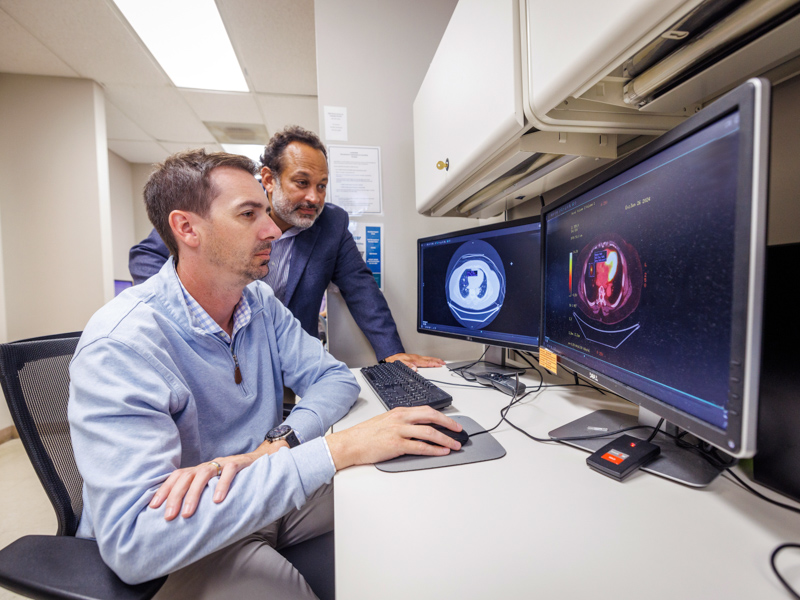UMMC Cancer Center and Research Institute’s lung cancer screening program secures $1.8 million grant

The UMMC Cancer Center and Research Institute received a QUILS (Quality Implementation of Lung Cancer Screening) grant, which focuses on improving lung cancer screening rates in Mississippi.
The initiative will provide nearly $1.8 million over four years to boost lung cancer screening efforts across Mississippi. Mississippi was one of only two states selected for this grant, primarily due to its low screening rates, along with high incidence and mortality rates associated with lung cancer. UMMC’s collaboration with the Mississippi Lung Cancer Roundtable also played a pivotal role in securing this important funding.
The potential impact of the lung cancer screening program on these critical issues cannot be overstated.
“Lung cancer claims the lives of over 1,800 Mississippians every year. Lung cancer screening is a proven tool to prevent these deaths by detecting cancer early, when it is easy to cure. Yet, less than 10% of eligible patients are screened,” said Dr. Pierre de Delva, UMMC division chief of general thoracic surgery and chair of the Mississippi Lung Cancer Roundtable.
“The management of a suspicious lesion noted on a screening is challenging and varies across institutions. The QUILS grant will help to increase the use and quality of lung screening across the state,” said de Delva. “Key to receiving this grant is the leadership of the UMMC Thoracic Oncology Group in the Mississippi Lung Cancer Roundtable. Building strong relationships with cancer programs across Mississippi has been a mission of both groups and was key to our selection for this grant. We hope to replicate the results seen with this program in Kentucky and make Mississippi a leader in the use of lung cancer screening to save lives.”
Dr. Jonathan Hontzas, assistant professor in the School of Population Health and director of the ACT Center and Lung Cancer Screening Program at UMMC, added, “Lung cancer results in more deaths than prostate, colon and breast cancer combined with Mississippi having among the highest incidence and mortality rates. Low-dose CT is the only proven lung cancer screening tool. We have this screening tool to reduce that mortality by at least 20%, but with lung cancer screening rates below 10% in Mississippi, we must do better. The QUILS grant will help equip our state with the necessary resources to increase quality, access and uptake of lung cancer screening thus resulting in a stage shift that saves lives.”
The QUILS program originates from the Kentucky LEADS (Lung Cancer Education, Awareness, Detection, and Survivorship) Collaborative, which was initiated in 2014. Led by the University of Kentucky and funded by the Bristol Myers Squibb Foundation, this program aims to increase lung cancer screenings, provide educational resources at both the state and local levels and offer stipends to health care sites to strengthen their lung screening initiatives.
UK will act as the program management hub and take the lead on coalition building and the implementation of the QUILS System. Meanwhile, the University of Colorado will oversee the clinician engagement component and evaluate the population health impact. Together, UK and CU will collaborate with UMMC’s CCRI to enhance the delivery and outcomes of lung cancer screening efforts.
Thanks to this program, Kentucky now boasts the second-highest lung cancer screening rate in the country, and late-stage cancer diagnoses have decreased by 10% over the past decade.
The CCRI hopes to repeat this successful model here in Mississippi.
“Mississippians face extensive barriers to lung cancer screening both on the program and patient level. Outreach to the general community and providers will be a focus as we seek to identify and reduce issues with access and knowledge,” said Hontzas. “We will identify groups in Mississippi that need resources to start or grow a lung cancer screening program and assist with funding and access to the QUILS model.”


